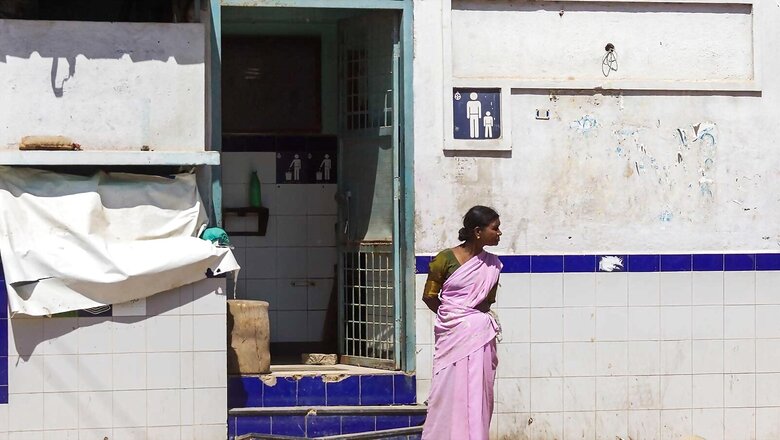
views
In most places across India, especially in rural areas, women walk miles every day to fetch water for daily use. They are often the ones assigned the task of collecting water for domestic needs. In Indian households, women are generally tasked with maintaining sanitation and hygiene standards not only for themselves but for others in the family too. Given their role in families and society at large, women can play an important role in achieving sustainable water, sanitation, and hygiene (WASH) outcomes. Women are important stakeholders and, when given the opportunity, can bring 360-degree change towards inclusive sanitation.
Women have remained instrumental in achieving the massive success at grassroot level under the Central government’s ambitious Swachh Bharat Mission (Grameen). They have played an important role in mobilising community members for safe sanitation practices, leading awareness campaigns, and executing behavioural change for sustainable sanitation. More women must be educated about sanitation and hygiene, and their potential to help achieve cleanliness goals must be realised. The proper way of storing water, treating it to make it safe for drinking, the importance of washing hands, and other such lessons have been traditionally passed on by women to the next generation in households. Women can help implement sanitary and hygienic practices in their households and teach their children, relatives, and friends about them. Their collective power can be harnessed to bring about social change.
Take the instance of Arpana Adhikary, the district coordinator of the Swachh Bharat Mission in Assam’s Barpeta district. Upon a lack of response from men regarding building toilets, Arpana picked out 22 women from self-help groups (SHGs) and trained them to be masons. These women have facilitated the construction of multiple toilets. The women are motivated for the cause, and their work as masons is good. Bringing the community together, especially women, has brought positive social change for multiple families around the district. Most households, impoverished or otherwise, have a toilet now. The level of sanitation in Barpeta has gone up considerably. At the grassroots level, many women sanitation crusaders have played important roles in building household toilets and mobilizing communities to make their villages open defecation-free.
Training women and empowering them to train others has turned out to be an excellent way to ensure safe sanitation for all in a community. Whenever given a responsibility, they have successfully delivered, and that necessitates their increased role in decision making and policy implementation around water and sanitation. The government has also recognised the contribution of women, and the guidelines under Swachh Bharat Mission (Urban) 2.0 and Jal Jeevan Mission mandate a greater role for women in the implementation of the programmes.
The safe sanitation practices followed by women are transferred to their children, and a systematic approach can accelerate the process to sustain sanitation outcomes. Women can be trained at workshops, and they can pass on their knowledge to others in their community. Not only are the lessons related to the importance of sanitation, but simple and impactful hygienic practices can permeate the entire community over time.
The power to make or influence decisions that affect one’s life is the first step in empowering any community. Exercising active agency in community-level actions not only helps women feel a sense of control over their lives but also positively affects self-esteem and confidence.
The role of women as educators must not be underestimated. If education begins at home, and if what we learn at home sticks with us for a lifetime, then the best way to mould inter-generational behaviour change to achieve larger sanitation goals is to educate and empower mothers.
Mission Swachhta Aur Paani, a News18 and Harpic India initiative, advocates the availability and usage of clean water and safe sanitation for all. Let’s all come together and join hands for Mission Swachhta Aur Paani- Mil Kar Lein Ye Zimmedari to ensure sustainable and inclusive sanitation. A grand Telethon will bring together government representatives, celebrities, artists, change makers, policy experts, and youth icons to celebrate the cause on the occasion of World Toilet Day on November 19.
Watch the Telethon LIVE on November 19, 12 pm onwards at: Mission Swachhta Aur Paani
Read all the Latest News here


















Comments
0 comment